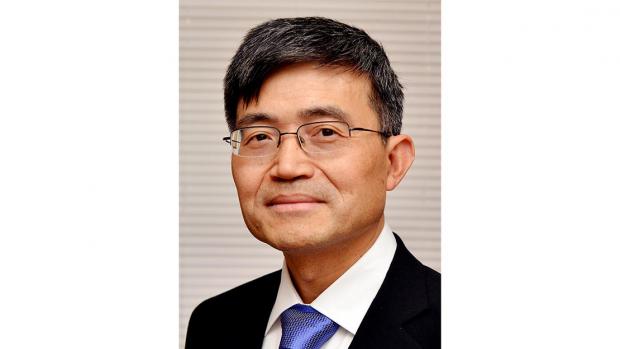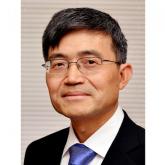Professor Zhong-Ping Jiang is elected to the prestigious Academy of Europe

Zhong-Ping Jiang, professor of electrical and computer engineering and director of Tandon’s Control and Network (CAN) Lab, has been elected to Academia Europaea (The Academy of Europe), an organization dedicated to excellence in scholarship in several branches of human endeavor, including mathematics, medicine, and all areas of natural and technological sciences for the public benefit. Jiang — who is also an affiliated member of Tandon’s Center for Advanced Technology in Telecommunications (CATT) and the Connected Cites for Smart Transportation (C2SMART) Center — is now a foreign member of the Academy’s Section on Physics and Engineering Sciences.
Jiang’s recent research focuses on interdisciplinary problems at the interface of control and learning for network systems, with applications to multi-agent systems, connected and autonomous vehicles, robotic networks, and cyber-physical systems. He was elected as a foreign member of Academia Europaea on the basis of his outstanding contributions to the nonlinear small-gain theory and a theory for learning-based control being developed at Tandon.
“Although I was born in China and earned my undergraduate degree there, and I’m now based happily in Brooklyn, I have deep academic and emotional ties to Europe because of the many years I spent in France,” he says. Jiang earned his master’s degree in France, at the University of Paris XI, and his doctoral degree at École des Mines de Paris under Professor Laurent Praly. He then remained in that country to undertake postdoctoral work at the INRIA Sophia Antipolis-a well-known National Research Institute in France.
His European connections extend beyond France, however; in 2015, for example, he spent a sabbatical from NYU Tandon at the University of Cambridge, where he worked alongside renowned neurobiologist Daniel Wolpert to apply his control-system theories to computational and systems neuroscience. Additionally, he has served as an assessor for the Belgian Research Foundation, Luxembourg’s Fonds National de la Recherche, the Czech Science Foundation, and the Dutch Research Council, and he has sat on committees at such European-based institutions as Stockholm’s Royal Institute of Technology, Ecole Polytechnique Federale de Lausanne, Eindhoven University of Technology, Imperial College London, and Italy’s University of Trento.
Among Jiang’s recent projects are studying how the central nervous system functions under conditions of uncertainty and helping clinicians devise new methodologies for the diagnosis and treatment of neurodegenerative diseases such as Parkinson’s and Huntington’s; applying adaptive dynamic programming techniques to the control of autonomous vehicles; and building a mathematical model specifically for New York City’s unique social and transportation structures, in an effort to help health and government leaders make smart, up-to-date testing and contact-tracing decisions during the COVID-19 crisis.
“I’m pleased to have collaborators from such a variety of scientific disciplines and so many countries around the world working with me,” he says, “and I am honored that the Academia Europaea has recognized my efforts to reach across borders to solve important research questions.”





